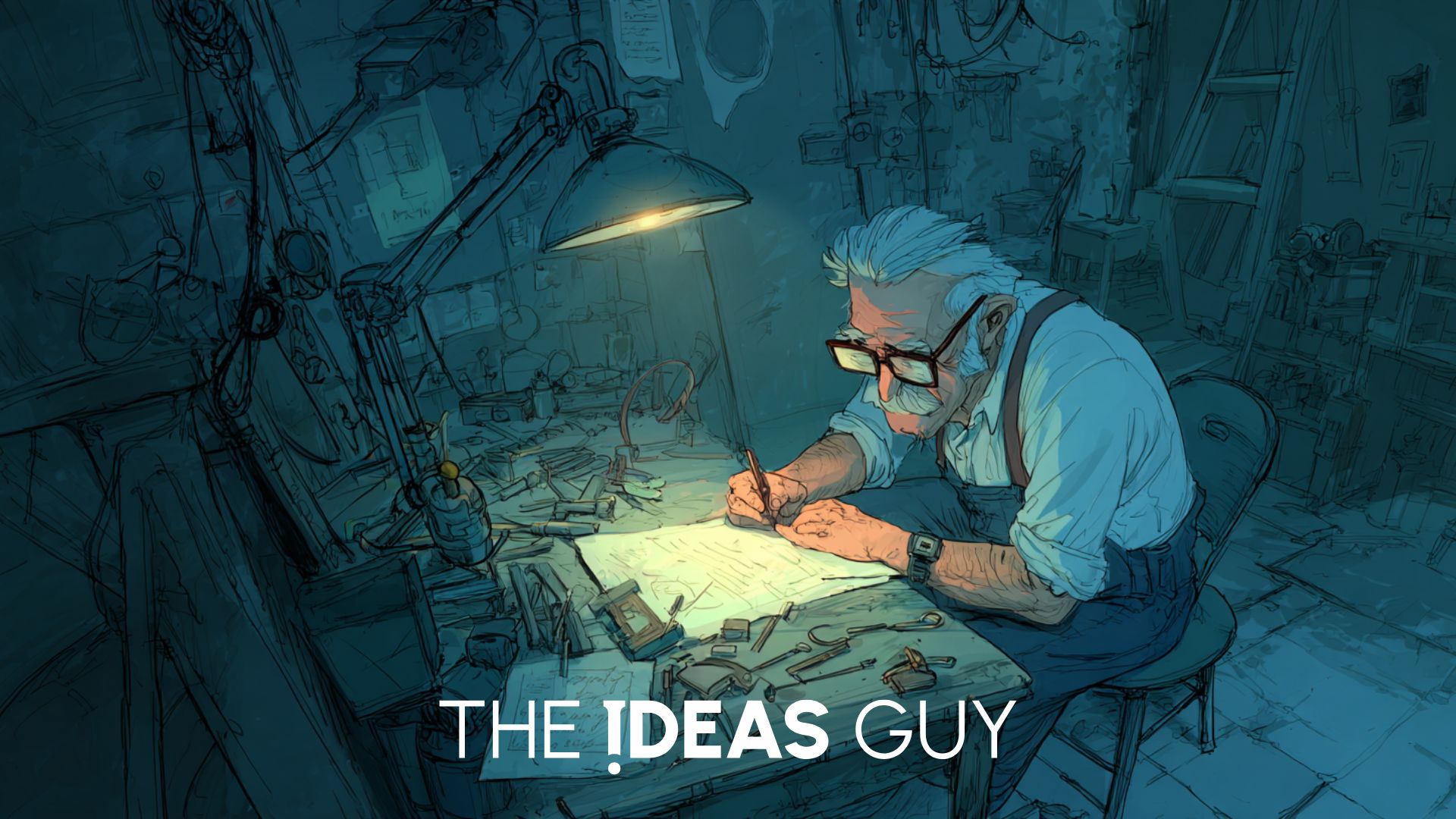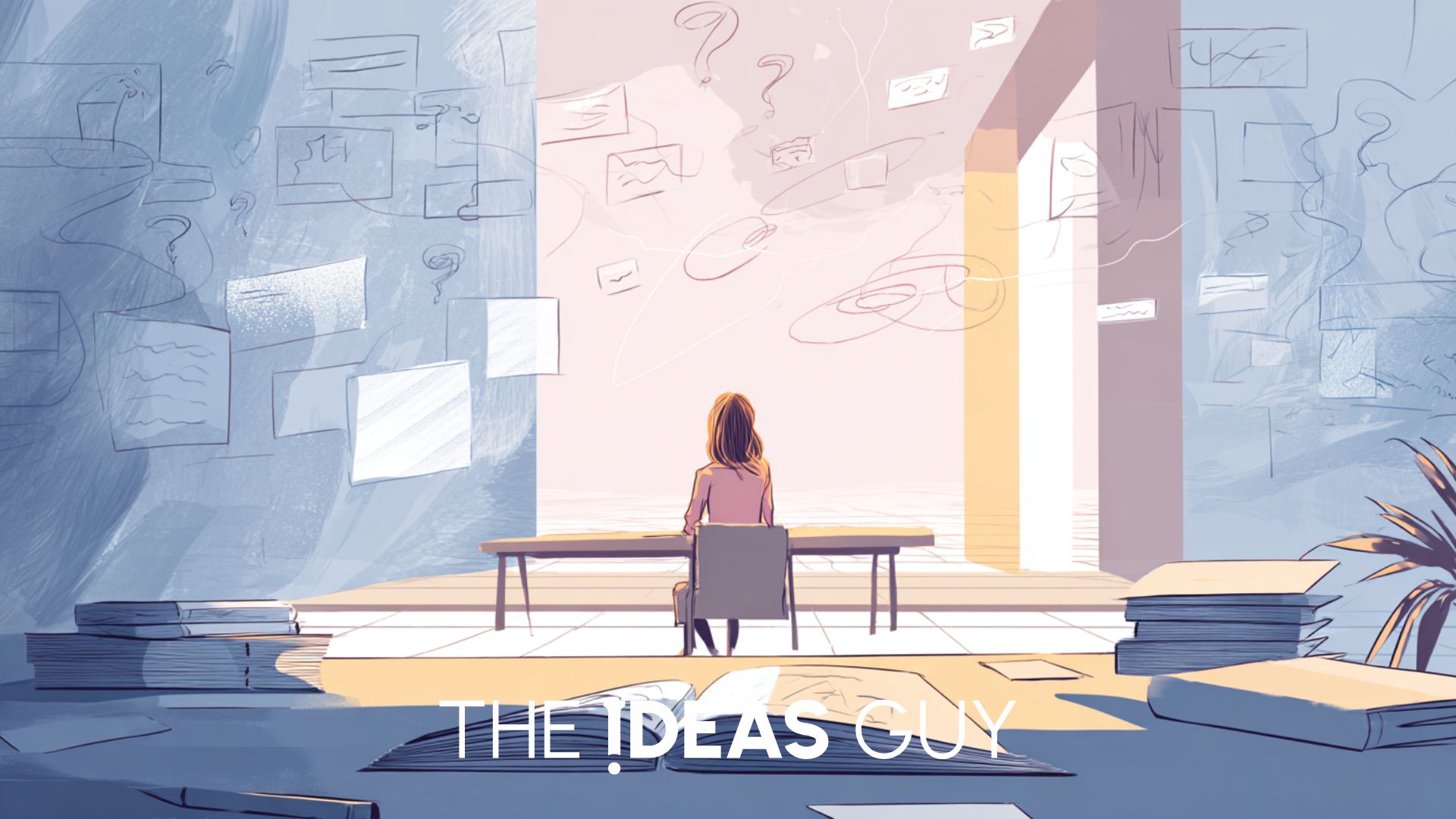Larry Winget's incisive observation, "It's not that we don't have time. It's that we don't have time for the things that are really important," strikes at the heart of a deeply ingrained struggle in modern society. Our world venerates busyness and perpetuates a culture of "yes," so it's all too easy to find ourselves mired in a labyrinth of commitments, obligations, and distractions that pull us further and further away from what truly matters.
I’m not sure that this predicament is a matter of mere time management or productivity hacks (however helpful those are and how much of a fan I am of them!); it's a fundamental question of authenticity and alignment. When we fail to prioritise what genuinely resonates with our values, passions, and purpose, we risk living a life that feels hollow and disconnected, like actors playing a role that doesn't quite fit.
The concept of "choosing your hard" offers a powerful reframe for navigating this labyrinth. There are thousands of memes (usually from fitness ‘influencers’ who make me feel guilty for drinking beer/eating cake/not just having broccoli and supplements for tea) about this choice. They usually go something like:

Marriage is hard. Divorce is hard.
Choose your hard.
Going to the gym is hard. Obesity is hard.
Choose your hard.
Saying no to your kids is hard. Watching your kids become spoiled brats is hard.
Choose your hard.
Saving money is hard. Being in debt is hard.
Choose your hard.
Telling the truth to your partner is hard. Lying and getting caught out is hard.
Choose your hard.
Life will never be easy. It will always be hard. But we can choose our hard.
This idea acknowledges that life is inherently challenging, but it also empowers us to consciously select which challenges are worth embracing in the pursuit of a more authentic existence. By recognising that we have agency in determining where we invest our time and energy, we can begin to craft lives that are grounded in our deepest truths and aspirations.
As a bit of a segue though, we should probably look at this idea of "choosing your hard" from a different angle. While it's a catchy phrase and can be a helpful mindset for some, it's not always as simple as it sounds. The reality is, not everyone has the same level of choice or control over the challenges they face in life.
If you're born into a family struggling to make ends meet, your "hard" is pretty much chosen for you. You're dealing with things like putting food on the table, keeping a roof over your head, and just trying to get by. The idea of "choosing your hard" can feel like a slap in the face when you're up against systemic issues like poverty, discrimination, or lack of access to education and opportunities.
And let's not forget about folks dealing with chronic illness, disability, or neurodivergence. They didn't choose their "hard" - it's just the hand they were dealt. Navigating a world that's not designed with their needs in mind is a constant challenge, and it's not something they can simply opt out of.
Even for those of us with more privilege and choice, it's not always as clear-cut as it seems. We're all influenced by societal expectations, family pressures, and economic realities. We might feel like we have to follow certain paths or prioritise certain things, even if they don't really align with what we truly want or need. So "choosing our hard" isn't always as simple as just making a decision - it can require pushing back against some pretty powerful forces.
Now, this doesn't mean the whole idea of "choosing your hard" is rubbish. For some people, it can be a really empowering way to think about taking ownership of their lives and focusing on what matters most to them. But we need to be careful about applying it as a one-size-fits-all solution. We need to recognise that the amount of choice and control we have can vary a lot depending on our individual circumstances and identities.
So, "choose your hard" if that resonates with you. But let's also not forget that for some folks, the hard chooses them.
This influencer-invested world bombards us with expectations and demands from every angle, making discerning what truly matters feel like trying to decipher a map written in an ancient, long-forgotten language. We may find ourselves saying yes to invitations out of a sense of obligation, taking on projects that drain our energy, or engaging in behaviours that don't reflect our true selves, all the while wondering why we feel so disconnected and unfulfilled. I certainly have even if you are nailing this (any tips?)
For me, the key to breaking free from this cycle has been about cultivating a deep and unwavering sense of self-awareness. This involved me carving out space for honest introspection, tuning out the noise of external expectations, and learning to listen to the quiet wisdom of my own heart. It means asking myself the tough questions: What brings me alive? What makes me feel most like myself? What kind of impact do I want to have on the world?
This self-awareness is not selfishness or egotistical introspection either, thinking that our way is the only way. Finding my values doesn’t mean that I can only do things and see people or cocoon myself with those who are the same as me. In fact, I have had to break away from what I considered ‘values’ over the last few years, realising that I had become someone I didn’t want to be because that was the culture, faith and tribe I had been tethered to.
As we all begin to gain clarity on our authentic priorities, we can start making more intentional choices about how we allocate our time and energy. This might mean saying no to social engagements that don't nourish us, even if it means disappointing others. It could involve setting firm boundaries around work and carving out non-negotiable time for rest, play, and creative pursuits. It might mean letting go of relationships or commitments that no longer serve us, even if it feels scary or uncomfortable.
One guiding principle in this process is the idea of "being famous in your own home." This phrase reminds us that the most important audience for our lives is often the people closest to us - our family, friends, and loved ones. It's a call to prioritise the relationships and experiences that bring us the deepest sense of connection, belonging, and meaning.

In their book Famous at Home: 7 Decisions to Put Your Family Center Stage in a World Competing for Your Time, Attention, and Identity, Dr. Josh and Christi Straub outline seven core decisions designed to help individuals prioritise their families and ensure they are giving their best to their loved ones. These are the seven decisions (but do read the book!)
- Change Your Mindset,
- Change Your Atmosphere
- Talk about Emotions
- Listen to Your Spouse's Heart
- Enter Your Child's World
- Establish Family Rhythms
- Set Values
I love these.
These decisions collectively aim to help individuals create a home environment where family members feel loved, supported, and prioritised. It helps us make decisions that matter to those who it will likely affect the most, and often, for some of us, the ones who have the most to gain AND lose by our presence or absence.
In practical terms, being famous in your own home might mean instituting a weekly family game night (my girls still love Uno, Yahtzee, Avocado Smash - check it out - although Monopoly and Mousetrap are banned….). Even if it means missing out on a networking event. It could involve learning to be fully present with your partner, without the constant distraction of screens and notifications. It might mean volunteering at your child's school or coaching their sports team, recognising that these moments of connection are the ones that will matter most in the long run. It’s easier said than done at times, especially for those who don’t have the flexibility of choosing when to work but it can also be a key factor if you can choose work. I love that my old line manager, Karen Pates, always told us to go to sports days, kids assemblies, the little awards things during the school day - and that made me want to work the extras for her even more so.
Of course, this doesn't mean completely abandoning our professional ambitions or wider social responsibilities. But it does require us to get crystal clear on our values and priorities, and to make sure that our time and energy are aligned with what matters most. It means being willing to let go of the false metrics of success that society imposes on us - the fancy job titles, the packed schedules, the endless pursuit of more - and instead defining success on our own terms.
The move towards authenticity and purposeful living is not a one-time decision, but a daily practice, as I have been saying every time this is our IDEAS focus. It requires consistently checking in with ourselves, recalibrating our priorities, and making conscious choices in the face of competing demands. Some days, we may find ourselves slipping back into old patterns of people-pleasing or overcommitment. But by cultivating self-compassion - space for grace, I like to call it - and gently redirecting ourselves back to our true north, we can slowly but surely craft lives that feel more authentic and aligned.

One powerful tool in this process is developing a personal mission statement or manifesto. This document can serve as a touchstone, reminding us of our core values, aspirations, and non-negotiables. By regularly revisiting and refining this statement, we can ensure that our daily choices are in integrity with our larger vision for our lives. I did this not too long ago in my own personal journal (if you need one…😉)
Another key strategy is learning to embrace the power of "no." We’ve said that our culture often equates busyness with importance and self-worth, so setting healthy boundaries can feel like an act of rebellion. But by saying no to commitments that don't serve us, we create space for the things that truly matter. This can be challenging, especially for those of us who have been conditioned to prioritise others' needs above our own. But with practice and self-compassion, we can develop the skill of gracefully declining invitations or requests that don't align with our authentic priorities.
All around us are fellow travellers, each grappling with their own unique set of challenges and aspirations. By sharing our stories and celebrating the diverse ways in which we choose to live authentically, we can create a world that values and honours the pursuit of what truly matters.
Ultimately, the pursuit of authenticity is not about perfection or having it all figured out. It's about having the courage to show up as our true selves, even when it's messy or uncomfortable. It's about being willing to let go of what no longer serves us, to say yes to what makes our hearts sing, and to trust in the wisdom of our own inner voice.
In societies that often feel fragmented and disconnected, choosing to live this way is a radical act of love and service. When we have the courage to stand in our truth, to prioritise what matters most, and to live in alignment with our deepest values, we not only transform our own lives but also inspire others to do the same. As my friend, Mmamotlhabi Tlailane, reminded me recently from the awesome, Marianne Williamson quote,
“Our deepest fear is not that we are inadequate. Our deepest fear is that we are powerful beyond measure. It is our light, not our darkness that most frightens us. We ask ourselves, 'Who am I to be brilliant, gorgeous, talented, fabulous?' Actually, who are you not to be? You are a child of God. Your playing small does not serve the world. There is nothing enlightened about shrinking so that other people won't feel insecure around you. We are all meant to shine, as children do. We were born to make manifest the glory of God that is within us. It's not just in some of us; it's in everyone. And as we let our own light shine, we unconsciously give other people permission to do the same. As we are liberated from our own fear, our presence automatically liberates others.”
We can embrace the challenge of choosing our hard, of daring to be famous in our own homes, and of crafting lives that are grounded in authenticity and purpose. Remember that we are not alone in this journey, and that by supporting one another and sharing our stories, we can create a world that is more compassionate, connected, and alive. Perhaps some questions might be useful to bring these all together:
- To address systemic barriers and privilege: How can we acknowledge and address the fact that the ability to "choose your hard" is often a privilege not afforded to everyone, particularly those facing systemic barriers such as poverty, discrimination, or lack of access to opportunities?
- To balance authenticity and responsibilities: How can we navigate the tension between pursuing our authentic priorities and managing our existing commitments and responsibilities, both personally and professionally?
- To cultivate self-awareness and alignment: What practices can we follow to develop a deeper understanding of our true values, passions, and purpose, and ensure that our choices and actions are in alignment with them?
- To redefine success and boundaries: How can we challenge societal notions of success and learn to set healthy boundaries that allow us to prioritise what truly matters, even in the face of external pressures and expectations?
In the end, the question of how we spend our time is not just a matter of practicality or productivity. It's a deeply spiritual and existential inquiry, one that invites us to consider what it means to live a life of meaning and purpose. By choosing to invest our time and energy in the things that truly matter, we open ourselves up to a world of possibility and joy, one authentic choice at a time.
Larry Winget's wise words told us, don’t forget: "There's always enough time to do what's really important." May we have the courage and clarity to discern what those important things are, and the conviction to prioritise them above all else.
Further Reading
Discover more interesting articles here.
.png)



